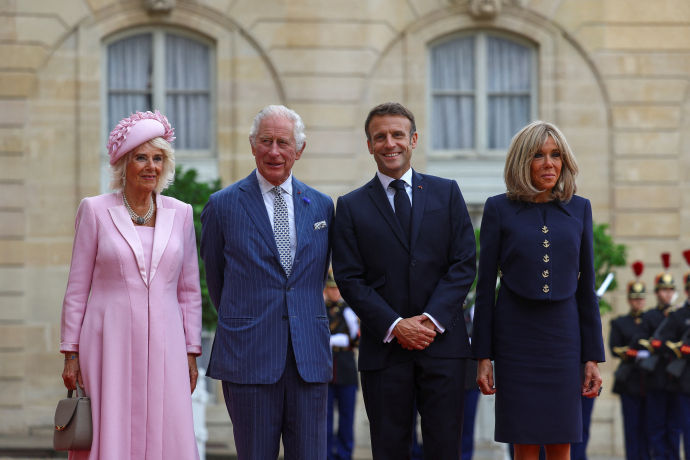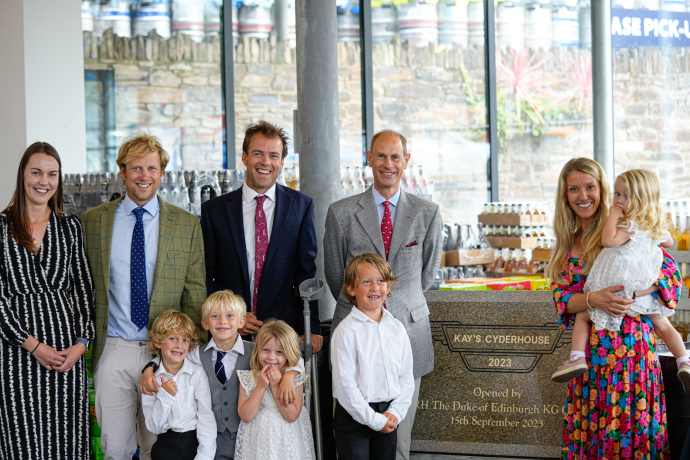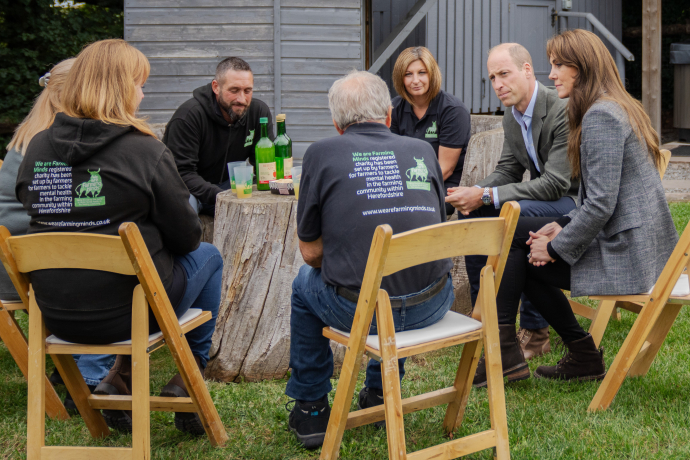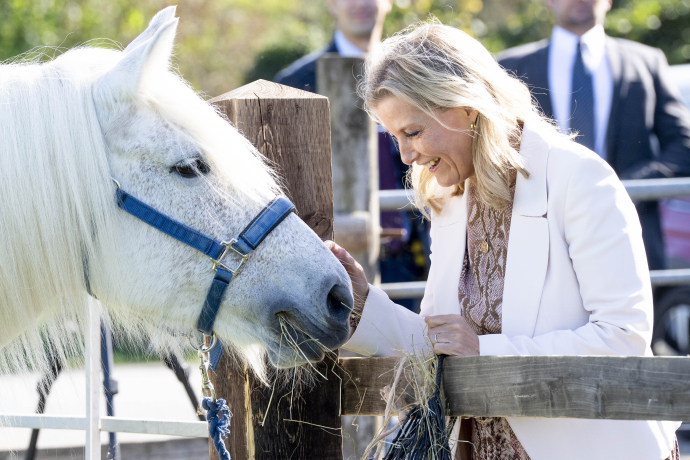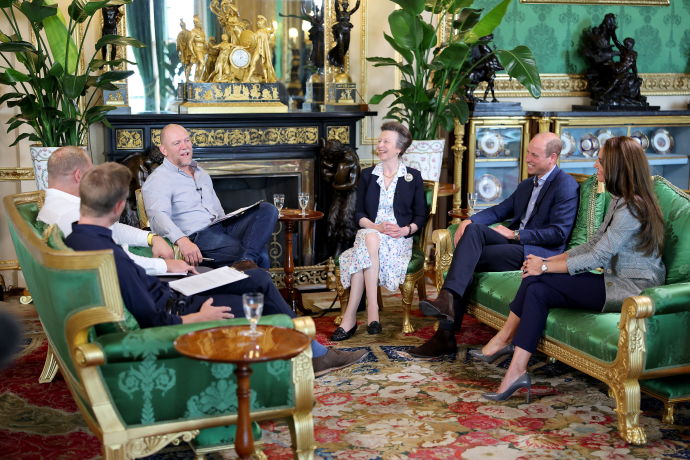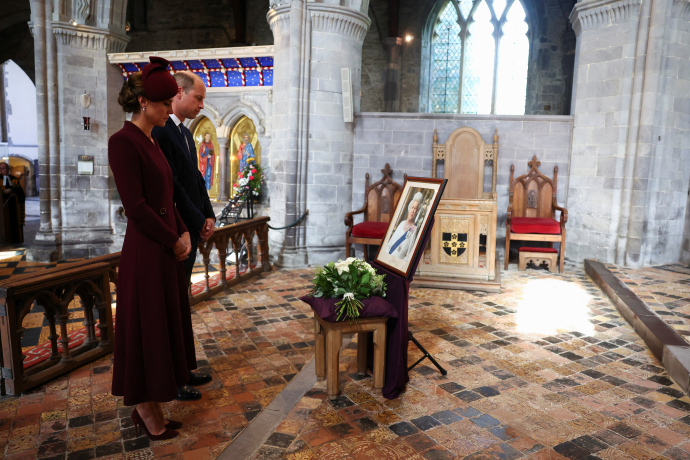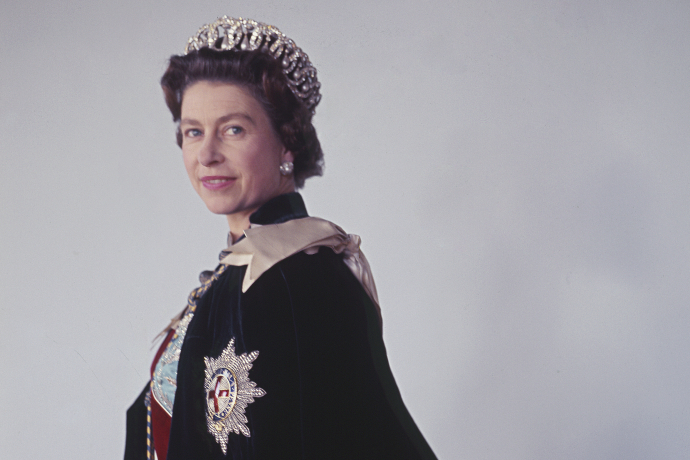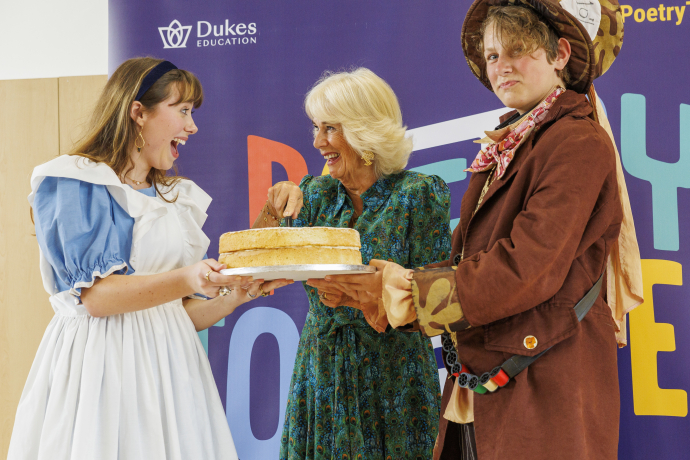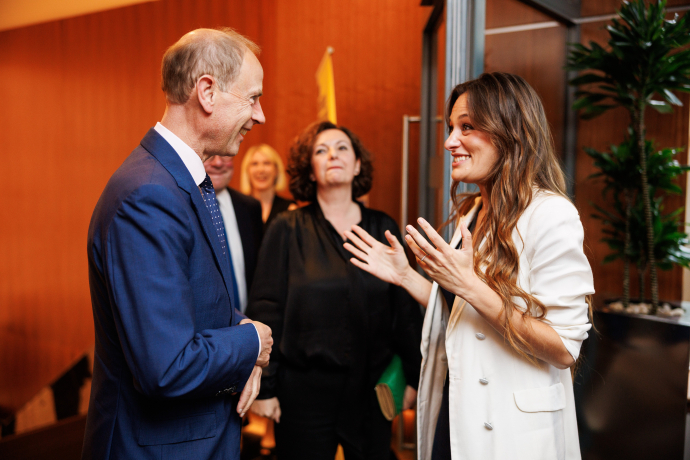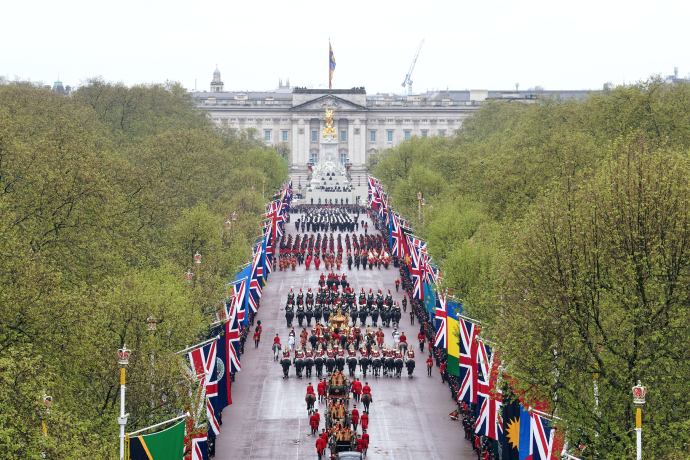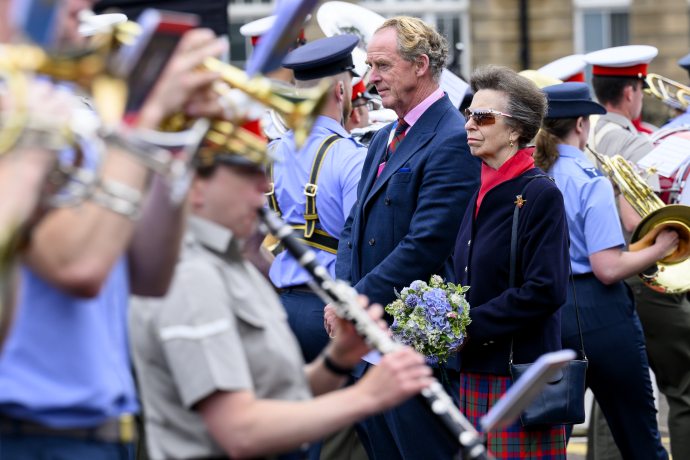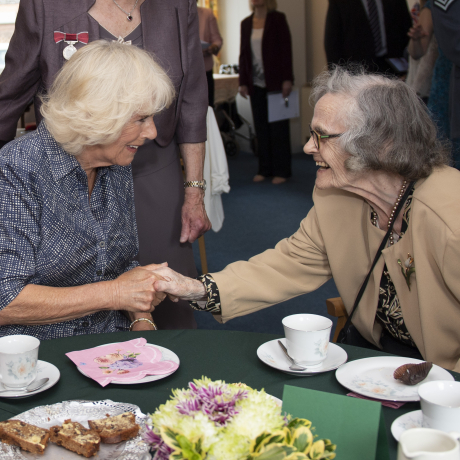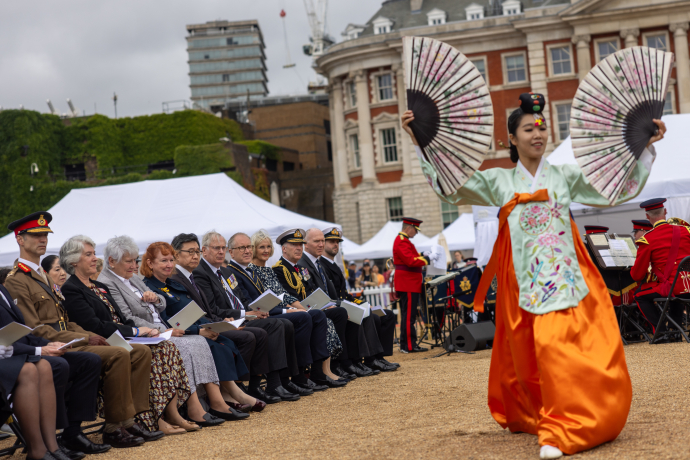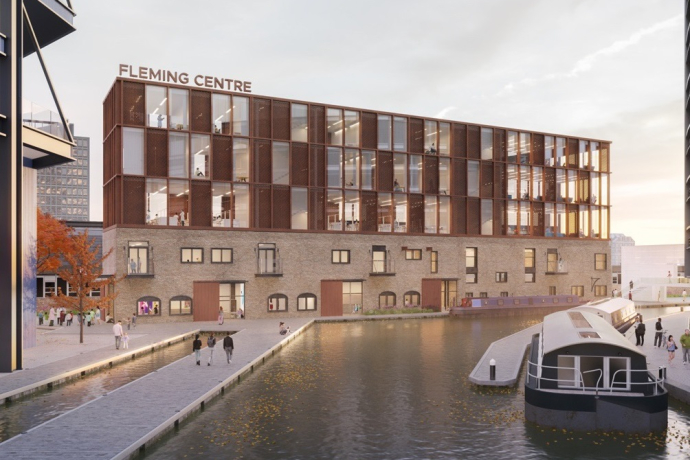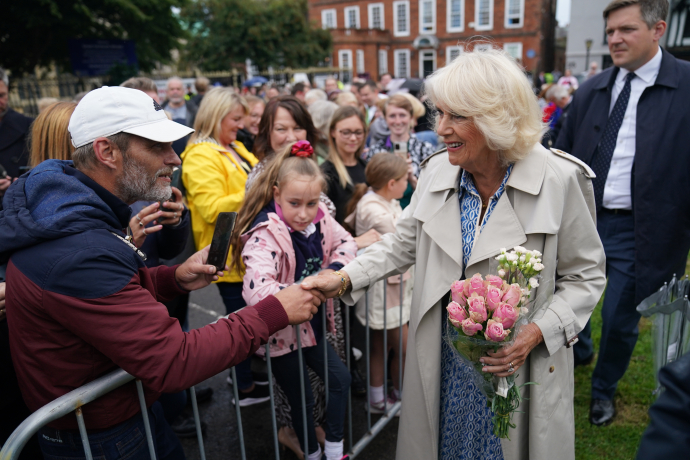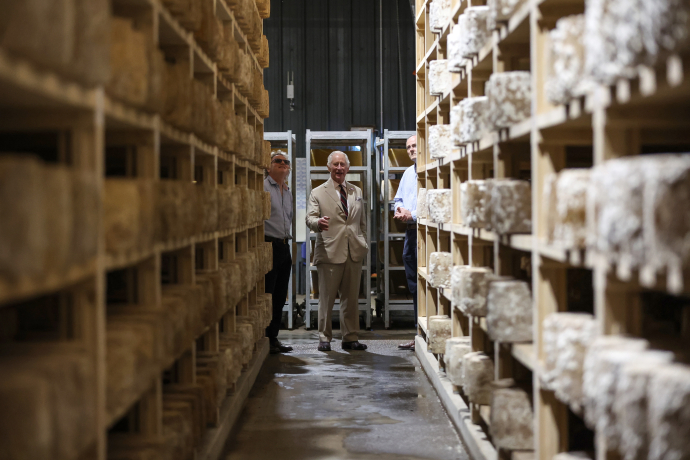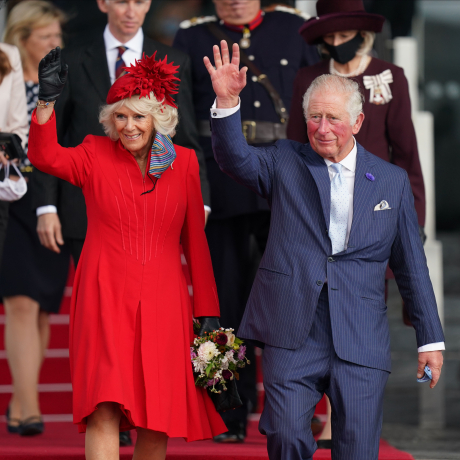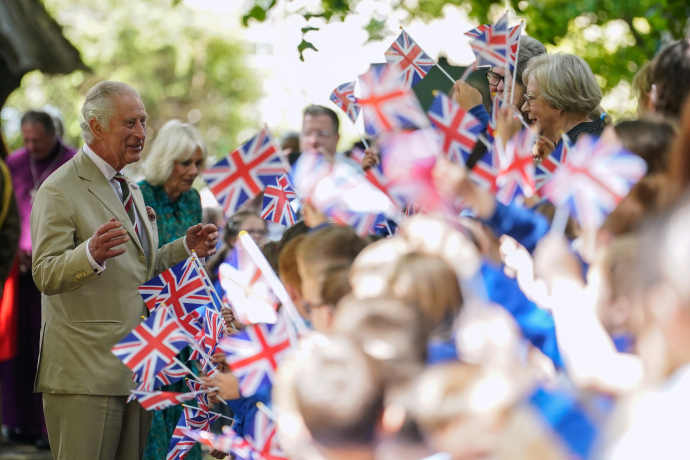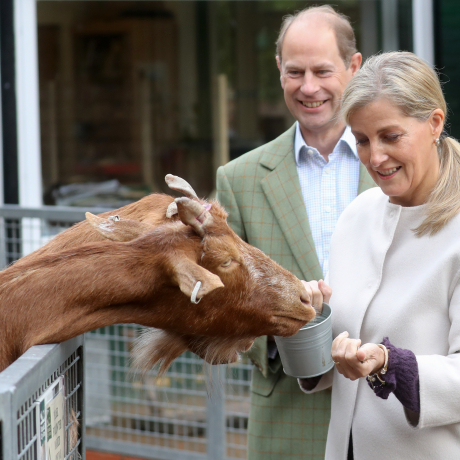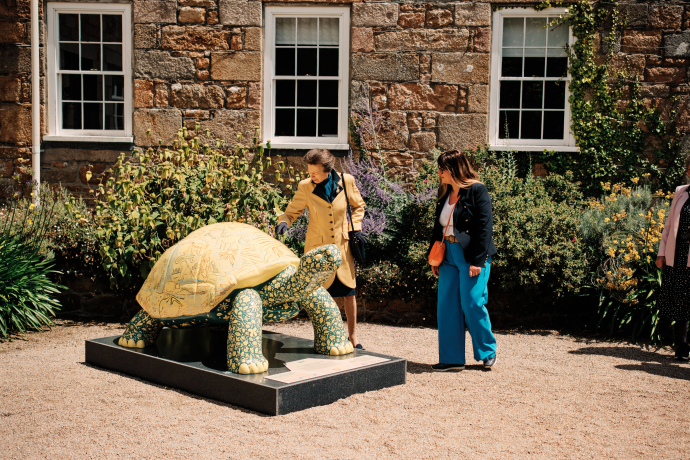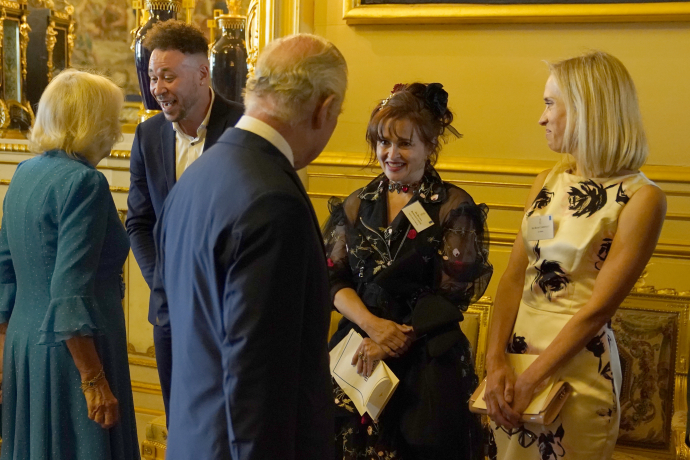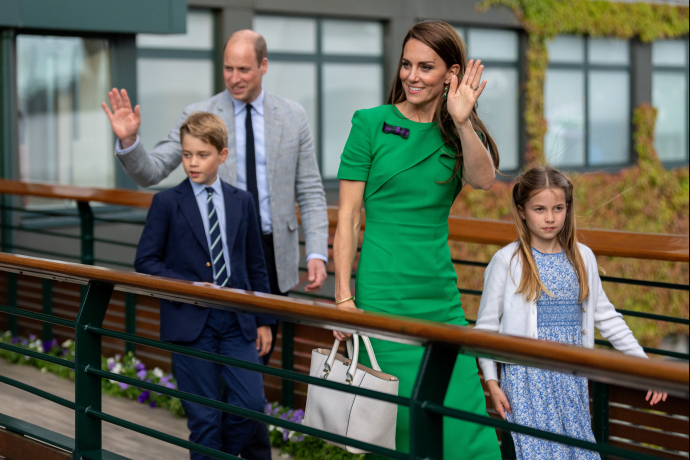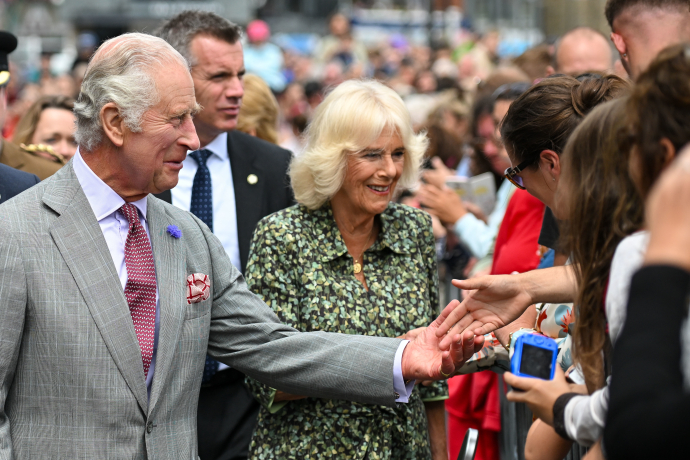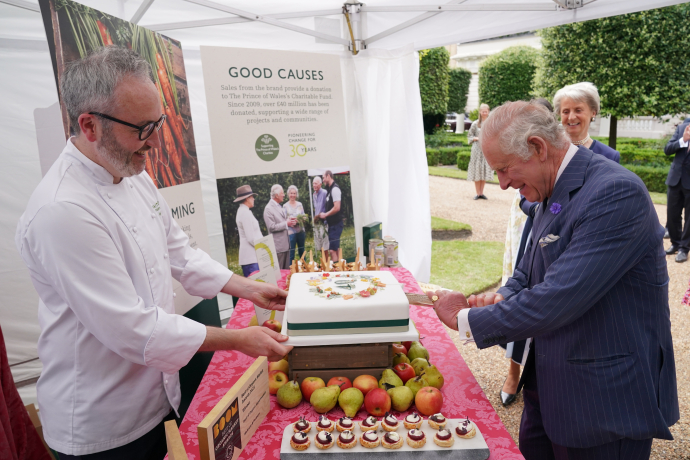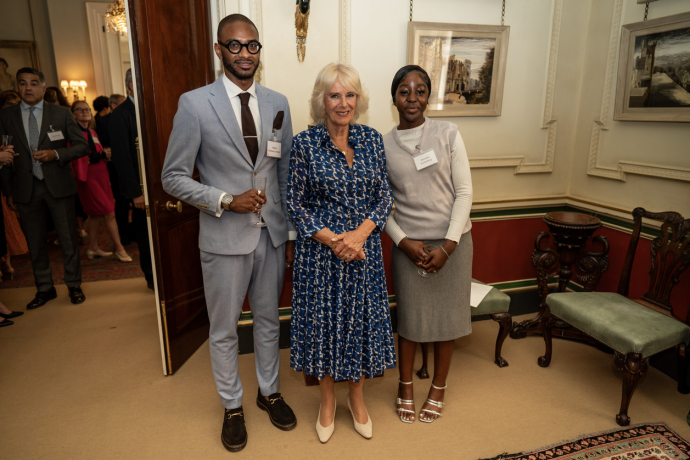Born Sophia Charlotte of Mecklenburg-Strelitz on 19 May 1744, she was the youngest daughter of Duke Charles Louis Frederick of Mecklenburg-Strelitz and Princess Elizabeth Albertina of Saxe-Hildburghausen.
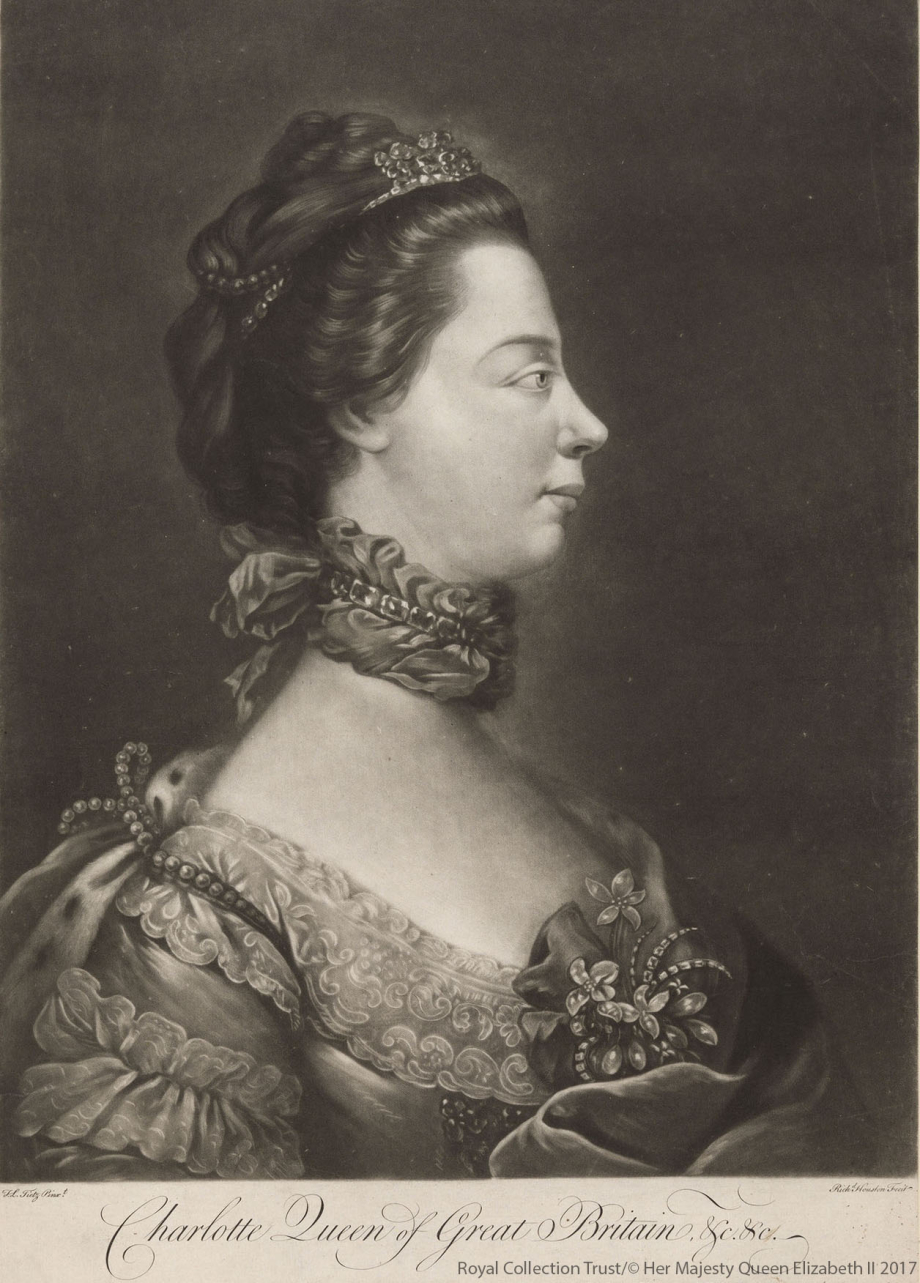
Mecklenburg-Strelitz was a small northern German duchy in the Holy Roman Empire, and Charlotte was born and brought up at Untere Schloss (Lower Castle) in Mirow.
When King George III of Britain succeeded to the throne in 1760, he was 22 and unmarried and the 17 year old Princess Charlotte was an obvious choice for a wife.
The King announced to his council in July 1761 his intention to wed the Princess, after which a party of escorts, led by The Earl of Harcourt, departed for Germany to bring Princess Charlotte to England. They arrived on 14 August 1761 and were received by Charlotte's brother, the current Duke, and the marriage contract was signed. Three days of celebrations followed and on 17 August the Princess departed for Britain. The voyage was difficult, with three storms at sea, arriving in London on 8 September.
At 9.00pm the same evening, within six hours of arrival, the wedding of Princess Charlotte and King George III took place at the Chapel Royal, St James's Palace. Their Coronation took place on 22 September that year.
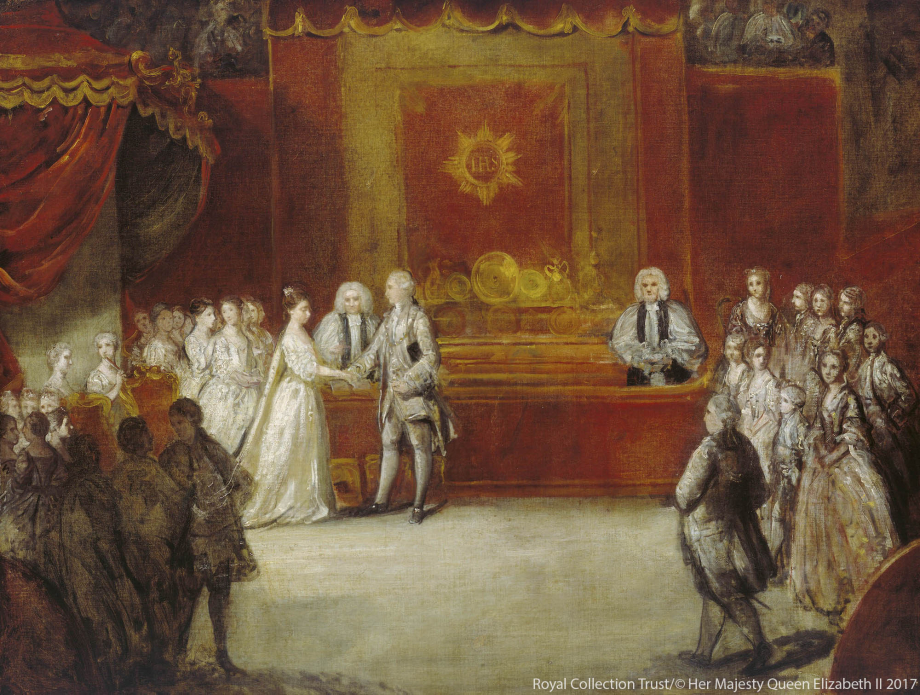
Less than a year after marriage, on 12 August 1762, The Queen gave birth to her first child, The Prince of Wales, who would later become King George IV.
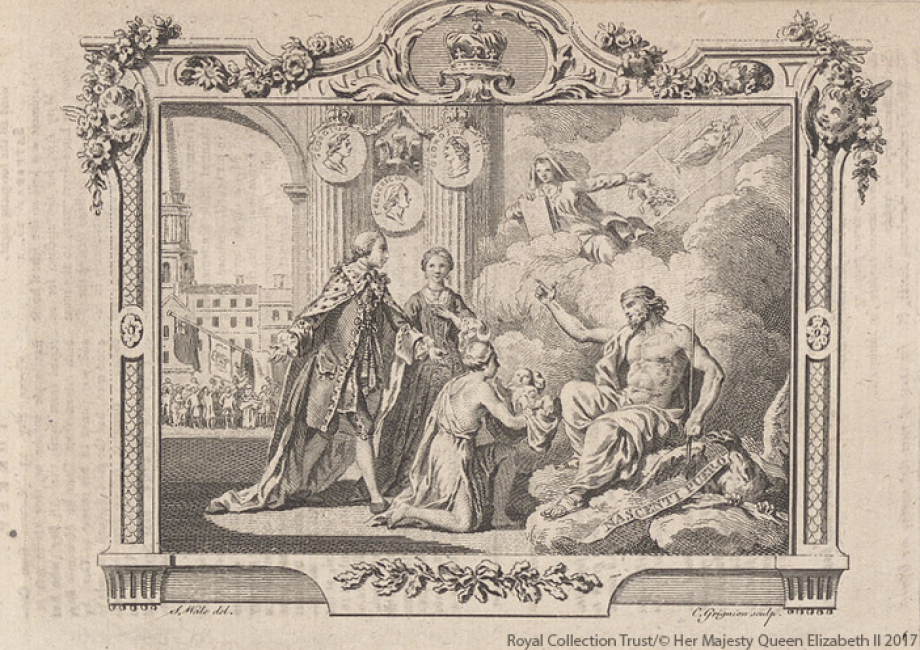
In the course of their marriage, the couple became parents of 15 children: George, Prince of Wales (b.1762), Prince Frederick, Duke of York and Albany (b.1763), Prince William, Duke of Clarence (b.1765), Charlotte, Princess Royal (b.1766), Prince Edward, Duke of Kent (b.1766), Princess Augusta Sophia (b.1768), Princess Elizabeth (b.1770), Prince Ernest, Duke of Cumberland (b.1771), Prince Augustus Frederick, Duke of Sussex (b.1773), Prince Adolphus, Duke of Cambridge (b.1774), Princess Mary, Duchess of Gloucester (b.1776), Princess Sophia (b.1777), Prince Octavius (b.1779), Prince Alfred (b.1780) and Princess Amelia (b.1783).
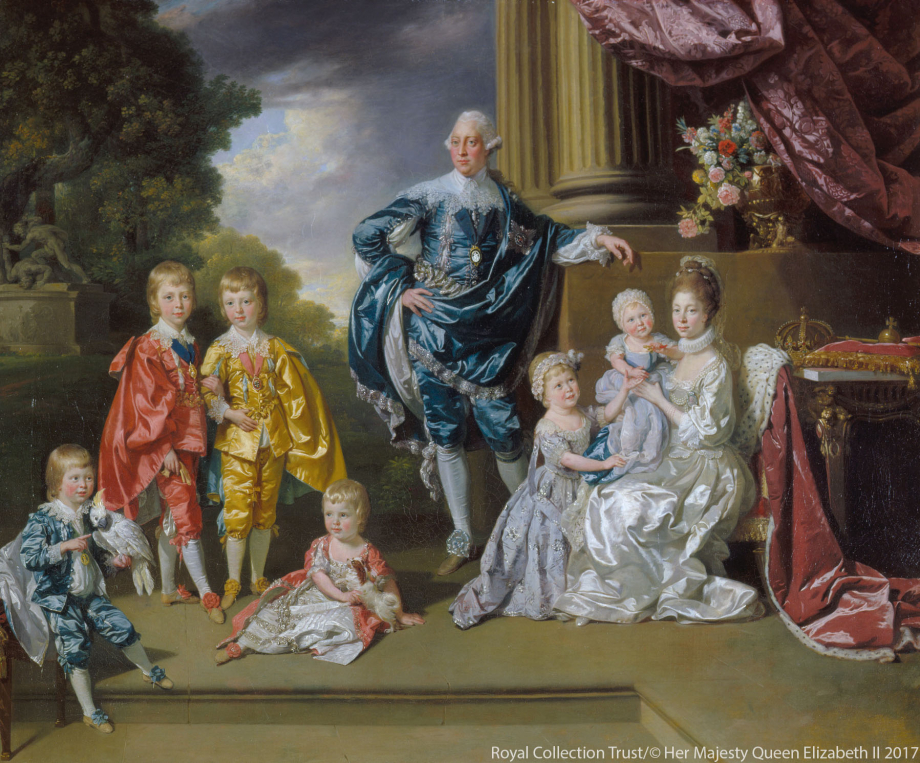
St James's Palace was the official residence of the Royal couple, but The King had recently purchased a nearby property, Buckingham House. In 1762 The King and Queen moved into this new house, making it Buckingham Palace. Charlotte loved it - 14 of her children were born there and it came to be known as 'The Queen's House'.
Queen Charlotte also purchased Frogmore House in Windsor Park in 1792 as a country retreat for her and her unmarried daughters. Frogmore played a key part in the celebration of King George III's Golden Jubilee in 1809:
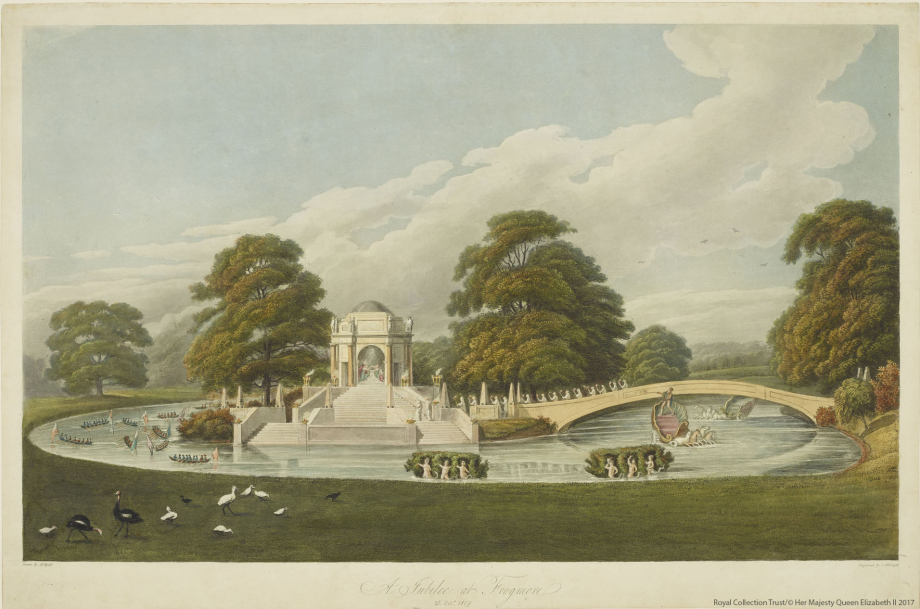
Queen Charlotte, along with her husband was a connoisseur of music, with special taste for German artists and composers such as Handel. The Queen's music-master was Johann Christian Bach, who was the eleventh son of the great composer Johann Sebastian Bach. An eight year old Mozart performed for The Queen and was invited to perform to at the celebration of the fourth anniversary of The King's accession in 1764. Mozart's Opus 3 was dedicated to The Queen when it was published on 18 January 1765.
The Queen was also an amateur botanist, who took a great interest in Kew Gardens. Kew Palace, then known as the Dutch House, was bought by George III in 1781 as a family home. Charlotte's interest in botany led to the South African flower, the Bird of Paradise, being named Strelitzia reginae in her honour.
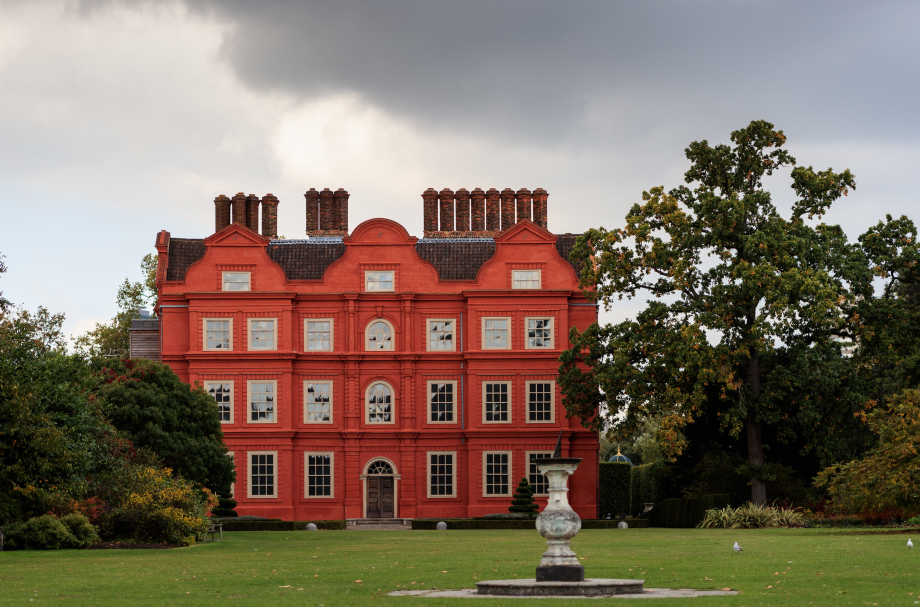
A number of orphanages were founded by Queen Charlotte, and in 1809 she came became Patron of the General Lying-in Hospital, which was subsequently renamed as The Queen's Hospital, and is today The Queen Charlotte's and Chelsea Hospital.
Queen Charlotte was kept unaware when King George III suffered his first, although temporary, bout of mental illness in 1765. However, The Regency Bill of 1765 stated that if The King should become permanently unable to rule, Charlotte would become Regent.
During the 1788 illness of The King there was conflict between The Queen and The Prince of Wales about a Regency. In the Regency Bill of 178, The Prince of Wales was declared Regent, should The King become permanently insane, but it also placed The King himself, his court and minor children under the guardianship of The Queen. After the onset of George III's permanent madness in 1811, The Prince of Wales became Regent, but Charlotte remained her husband's guardian until her death in 1818.
The Queen died in the presence of her eldest son, The Prince Regent, at Dutch House (now Kew Palace) on 17 November 1818 and was buried at St George's Chapel, Windsor Castle.
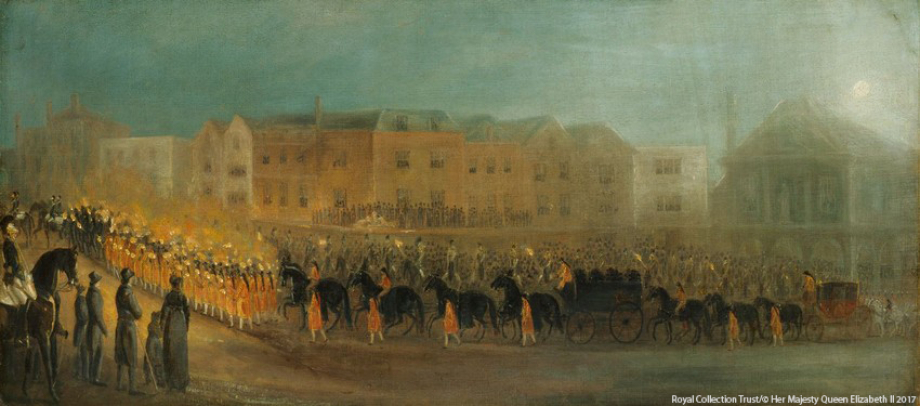
Many places around the world have been named after Queen Charlotte: Charlottetown (Prince Edward Island, Canada), Queen Charlotte Bay (West Falkland), Queen Charlotte Sound (South Island, New Zealand), Charlottesville (Virginia, USA), Charlotte (North Carolina, USA) and Mecklenburg County (Virginia, USA).

